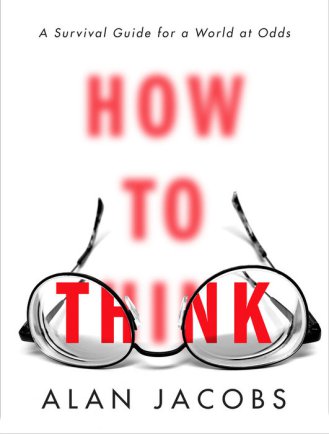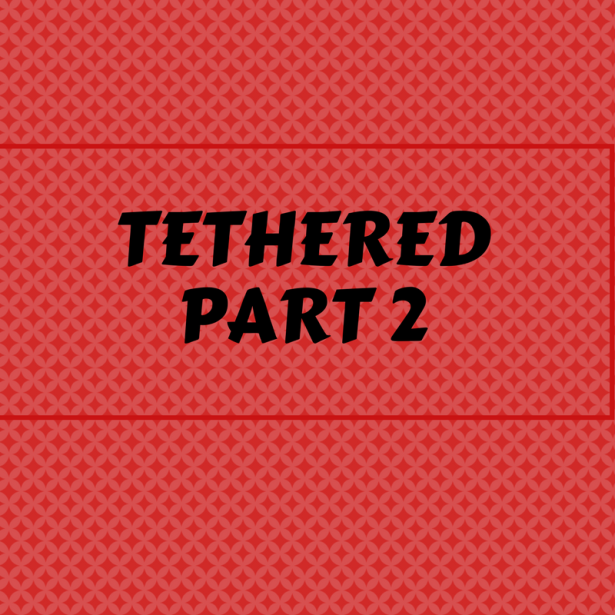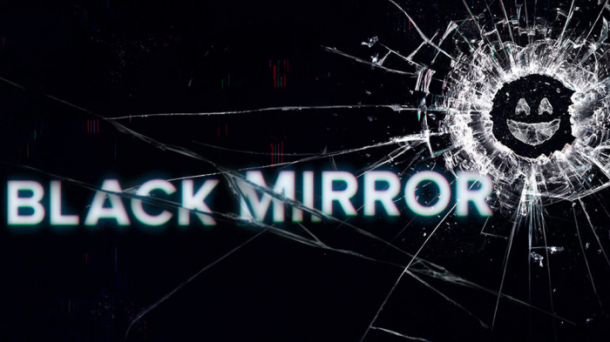Like many (maybe most) people who use social media, I have a like/hate relationship with it (“love” would be too strong, but “hate” isn’t). On the one hand, I find it useful for connecting in small ways to people I already know, and getting to know a few people I didn’t know before (although I never accept friend requests from people I don’t know on Facebook, and rarely interact with people I haven’t met in person on Twitter).
On the other hand, a whole lot of the time social media looks like everyone on it has collectively decided that the foolishness described in Proverbs 18:12 (“Fools find no pleasure in understanding but delight in airing their own opinions”) is actually wisdom after all. It seems that these days, in real life as well but especially on social media, there are only two options when you’re faced with a substantial area of disagreement with someone else:
 In his book How to Think: A Survival Guide for a World at Odds, Alan Jacobs presents a third, seemingly forgotten way: thinking. Not burying your head in the sand, as in #1 above, and not assuming you know the solution from the beginning and using any means necessary to destroy those who stand in your way, as in #2 (what Jacobs calls “Refutation Mode”), but thinking. Using your noggin. Exerting the little grey cells, as Hercule Poirot used to say.
In his book How to Think: A Survival Guide for a World at Odds, Alan Jacobs presents a third, seemingly forgotten way: thinking. Not burying your head in the sand, as in #1 above, and not assuming you know the solution from the beginning and using any means necessary to destroy those who stand in your way, as in #2 (what Jacobs calls “Refutation Mode”), but thinking. Using your noggin. Exerting the little grey cells, as Hercule Poirot used to say.
This is a short book, at just 157 pages. In spite of its somewhat grandiose title (but more in keeping with its more modest subtitle), this is not a book about how to think in general but more specifically about how to get past social and psychological barriers that prevent you from thinking in the first place. Because the problem is not merely that we aren’t trained to think very well, but that even if we have been trained, we don’t tend to do it. It’s hard. It doesn’t give us the rush of blood to the eyeballs that vanquishing the enemy gets us. But then, vanquishing the enemy doesn’t usually work either, since enemies almost always don’t stay vanquished for long.
Alan Jacobs tells us the circumstances in which we are most tempted not to think, so we will be on guard in just those situations. For example, when we are tempted to circle the wagons around our own group: “The person who genuinely wants to think will have to develop strategies for recognizing the subtlest of social pressures, confronting the pull of the ingroup and disgust for the outgroup” (23). And when we tend to repeat keywords, metaphors, and myths whose primary purpose is to communicate that we are part of a particular group: “In search of social belonging, and the blessed shortcuts that we can take when we’re in the presence of like-minded people, we come to rely on keywords, and then metaphors, and then myths—and at every stage habits become more deeply ingrained in us, habits that inhibit our ability to think” (105).
When it comes to advice on how to think, though, Jacobs doesn’t exactly give us a to-do list. There is a “Thinking Person’s Checklist” on page 155, but it is less a checklist and more a list of things to remind yourself of from time to time, like “4. Remember that you don’t have to respond to what everyone else is responding to in order to signal your virtue and right-mindedness,” and “Try to describe others’ positions in the language that they use, without indulging in in-other-wordsing,” and my favorite, “12. Be brave.”
This is a fun little book; Jacobs clearly derives a good deal of joy from writing, and it’s contagious. Sadly, though, I think the people who are most likely to need this book are the least likely to read it. They are still trying to vanquish the enemy, and they haven’t yet seen the shortcomings of this approach.
People who already show a degree of epistemic humility, who acknowledge that they don’t have the answers and like to seek out the best counterarguments, are most likely to read it but are the least likely to need it. You have to want to be that kind of person in the first place to derive benefit from this book. Somewhere in life, you need to be humbled. You need to come to the realization that the world is more complex than you can understand, that you can’t get everything you want by looking for the right levers to pull. It’s a good realization to have. I wish it for everyone, and myself on a daily basis most of all.
So here’s my recommendation: if you’re just starting to see the futility of “vanquish the enemy” mode, please please pick up this book.
Note: I received a review copy of this book from the publisher. I was not asked to give a positive review.
Advertisements Tell your friends!- More





